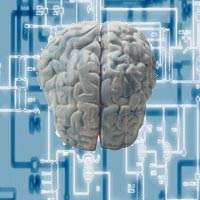This is just a thread for my own self amusement and to work out some ideas I have for a writing project in progress. I'll put up some questions and quotes first without biasing the thread with my opinions.
Two definitions up front:
Ethics - I tend to use the Jeremy Bentham utilitarian definition of ethics, i.e. that ethical behavior is what creates the creates good (human happiness) for the greatest number of people.
Stupidity - I think about stupidity as being an inability to internally model the real world robustly in a way that is fast enough to be of benefit (and therefore possbily harmful) to an individual or those who his behavior effects.
Some questions to consider:
If it was possible to enhance a human brain through physical augementation in what situations is modification a) ethical and/or b) desirable?
Should stupidity be defined as medical condition for which treatment is justified? (and possibly covered by a national health care system or insurance)
Is it ever ethical to enhance a person of lower intelligence against their will? For example situations in which their level of intelligence may threaten the life of themselves or others?
Should people in a society be subject to intelligence testing to determine if they are qualified to participate in certain functions of that society and then possibly given the option of modifying to reach a higher level of participation? (i.e. is it ethical to restrict their freedom in society based on their level of intelligence?)
Quotes on stupidity
Most people would die sooner than think; in fact, they do.
Bertrand Russell
Two things are infinite: the universe and human stupidity; and I'm not sure about the universe.
Albert Einstein
There is no sin except stupidity
Oscar Wilde
Conservatives are not necessarily stupid, but most stupid people are conservatives.
John Stuart Mill
At least two thirds of our miseries spring from human stupidity, human malice and those great motivators and justifiers of malice and stupidity, idealism, dogmatism and proselytizing zeal on behalf of religious or political idols.
Aldous Huxley
Stupidity cannot be cured with money, or through education, or by legislation. Stupidity is not a sin, the victim can't help being stupid. But stupidity is the only universal capital crime; the sentence is death, there is no appeal and execution is carried out automatically and without pity.
Robert Heinlein
Edited by ocsrazor, 10 March 2005 - 05:27 PM.
















































